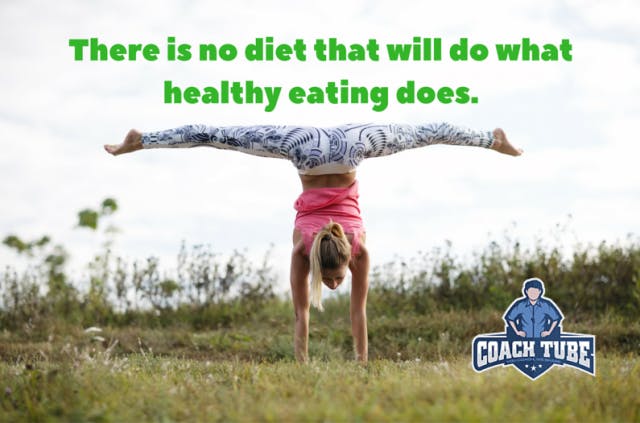Reasons for Low Energy Levels
Many overweight and obese people suffer from low energy levels, but
this problem might not be caused by high body weight. Instead, it might
actually be produced by a hormonal or emotional disorder, such as
hypothyroidism, chronic fatigue syndrome, depression or similar
problems. All these conditions can affect your motivation, energy levels
and your weight, encouraging you to gain. Talking to a doctor can help
you deal with the underlying cause and may make becoming active much
easier.
You might also experience low levels of energy if your body doesn't
process carbohydrates properly. This is common in people who have
developed insulin resistance, pre-diabetes or type 2 diabetes. If you
don't monitor your carbohydrate consumption and you have one of these
disorders, you may find yourself suffering from uneven moods and periods
of extreme fatigue. You might even feel dizzy or lightheaded. Some
people with low energy and high body mass are also suffering from sleep
disorders, such as sleep apnea, which is aggravated by a high weight and
can cause extreme fatigue. Like hormonal problems, seeing a doctor can
often help you overcome these problems.
Physical Barriers to Exercise
There are also physical difficulties that can make it difficult for
many overweight people to enjoy regular exercise. The majority of the
sedentary population suffers from poor endurance and low muscle mass,
which can make conventional exercise programs exhausting and difficult,
but this problem is greater for sedentary people with a high body
weight. Simply moving your own body around can be tiring if you're not
used to it.
You may also suffer from problems such as exercise-induced asthma,
joint pain from old injuries or weight-related stresses, and an
increased tendency to sweat. Exercise can be particularly difficult if
you have a major physical disability that has encouraged you to gain
weight. That doesn't mean you can't find an option that works for you,
however.
Working around Problems
The good news is that even if you are physically disabled, suffering
from extreme tiredness, or have other problems that make conventional
exercise programs difficult, you can still enjoy regular physical
activity. The first step is to redefine your idea of exercise.
Most people think that they have to accomplish a certain amount for
it to "count" toward their physical fitness. This myth has kept a lot of
people feeling uncomfortable in their own bodies, but helpless to
improve their health. The truth is that any activity is good activity,
and you need to scale your exercise routine to fit in with your personal
fitness level. If that means walking slowly around the block or doing
easy push-ups against the wall to start with, there's nothing wrong with
that.
Take some time to think about the activity level you're currently
comfortable with. If climbing stairs makes your knees hurt or you have
trouble walking to catch the bus, you may need to pursue an alternative
to the standard programs. Identify a form of exercise that makes you
feel comfortable, even if it's something as simple as stepping in place
during a television program or taking a walk with your kids or pets.
Look for something that will get you moving and make you feel a little
bit of exertion, but avoid activities that will cause you pain or leave
you feeling exhausted. Try to do the same thing every day.
If you have a physical disability such as an old injury or congenital
problem, don't try to force your way past it. You could end up hurting
yourself even worse. Instead, design your exercise program to work
around your problems. Get the help of a physical therapist or a personal
trainer who specializes in your disability if you're not sure of the
best way to do this. If you suffer from any significant symptoms due to
your increase in activity, talk to your doctor about the problem, and
make sure that he or she takes you seriously. Doctors who prescribe
severe dieting instead of treating your injury are focusing on the wrong
thing, and can actually be detrimental to your physical fitness.
Leveling Up
If you do even a very small amount of exercise every day, there's a
good chance you'll find that it gets easier over time. When that
happens, it's time to increase your level of activity. Add a light set
of hand weights as you walk around the park. Shift your bicycle into a
slightly lower gear, or add a step to your program of walking in place.
Increase the number of sit-ups or push-ups you're doing. It doesn't
matter how you increase the difficulty as long as you make sure you do
it gradually and keep things within your ability. Any exercise counts,
as long as it gets your heart rate up and puts a little stress on your
muscles.
Over time, you'll probably find that it's a lot easier to get
started. Everyone has bad days, of course, but many people also find
that getting more active actually improves their energy level. For
people who suffer from depression and insulin-related problems, physical
activity can even reduce symptoms, making day to day life a lot easier.
If you consume a balanced diet with enough calories to fuel your
exercise, there's even a good chance that moderate increases in physical
activity will help you reduce your weight.
You may feel like your weight or medical conditions mean that you
can't get "real" exercise. This is a myth that could be seriously
detrimental to your health. Instead of letting other people's extreme
ideas of what fitness means hold you back, take some time to look at
your own situation. Find a way to get moving that doesn't disrupt your
life or make you feel miserable, and you may be surprised at the
difference it can make.
Even a relatively minor increase in physical activity levels has been
shown to reduce weight and help your health. While burning an extra 100
calories per day may not seem like much, it could help you drop about a
pound a month, as well as lowering your blood pressure, decreasing your
risk of diabetes, strengthening your joints and reducing your stress
levels. As you become more fit, you can increase your workout, boosting
the amount you burn.
Don't let yourself end up feeling tired and flabby when you could
enjoy the benefits of a healthy workout. There's no such thing as bad
exercise! Just take precautions to make sure you won't hurt yourself,
tailor your workout to your personal situation, and be willing to get
moving.










